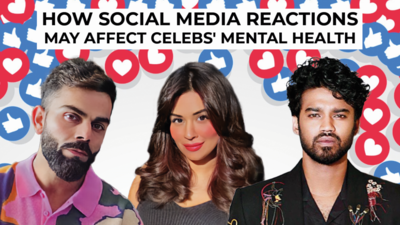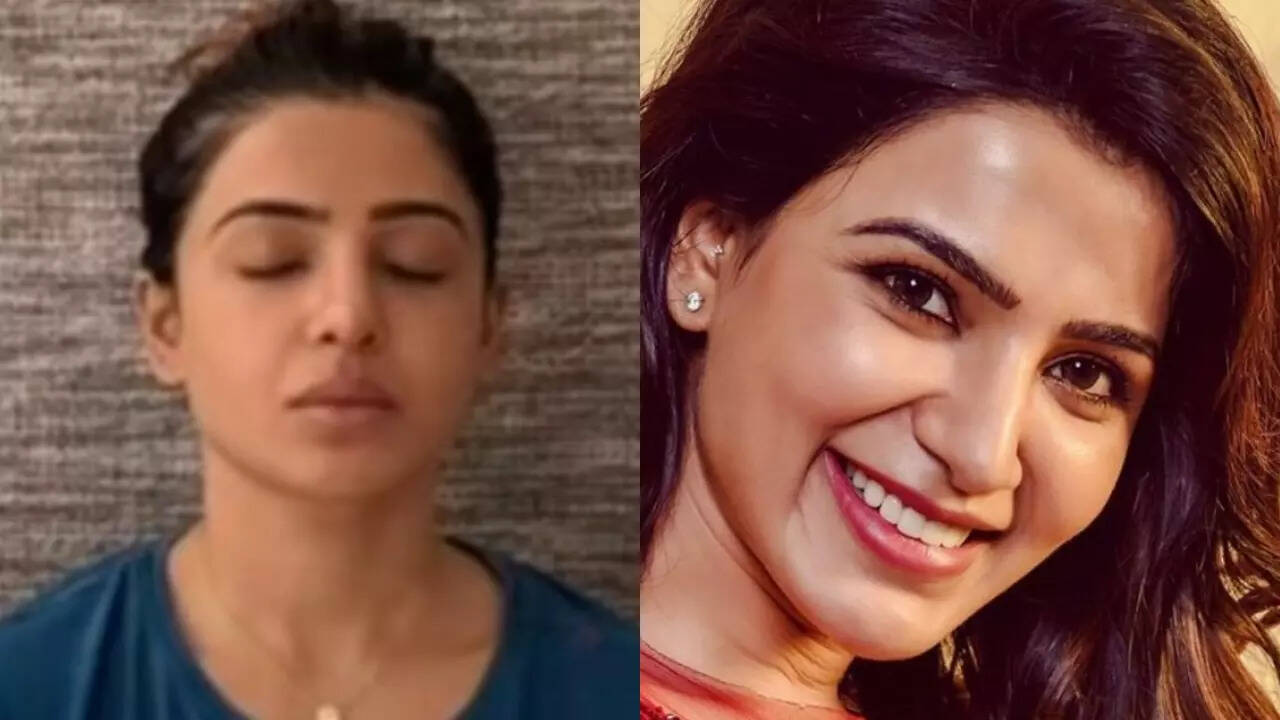
Ever wondered how just one tiny moment can turn a celebrity into the internet’s hottest topic? These days, with everyone glued to their screens, it only takes a single ‘like’, a quick post, or a short video for things to spiral. Suddenly, Reddit threads are buzzing with theories, Twitter explodes with wild speculations, and Instagram is flooded with memes. Sometimes it’s all in good fun, sometimes it’s a complete misunderstanding. But behind the glitz and the cheers, there’s a darker side to fame: endless judgment. Every move is watched, every slip is shared, and the whole world is ready to weigh in-whether you like it or not.
When Virat Kohli accidentally 'liked' Avneet Kaur’s picture
It all began on 1 May when fans noticed Virat Kohli had liked a picture of Avneet Kaur posted by one of her fan pages. The timing was what made it blow up. Kohli had just wished his wife, actress Anushka Sharma, a heartfelt birthday message a few hours earlier. The post showed Avneet in a green crop top and wrap skirt, and before long, the memes had taken over. Social media users tagged Anushka, dragged Mark Zuckerberg into the drama, and speculated endlessly about Kohli’s intentions. Soon after, the like disappeared, but not before thousands had screenshotted it. From Twitter jokes to Instagram memes, a single tap on Instagram became a viral conversation. And let’s not forget the real kicker, Avneet gained nearly 1.8 million followers overnight, and also reportedly, her brand deals soared.
To calm the chaos, Kohli posted on his Instagram stories, "I'd like to clarify that while clearing my feed, it seems the algorithm might have incorrectly registered an interaction. There was absolutely no intention behind it. I request that no unnecessary assumptions be made. Thank you for your understanding."
Rather than putting the story to bed, his explanation sparked even more memes. "Galti se picture like hogai hogi," one user tweeted, summing up the absurdity. It was funny, sure, but it also highlighted how celebrities can’t make even the smallest digital move without the world reacting.
Singer Mocks Kohli's Algorithm Excuse
The price of going viral
To understand how these digital eruptions affect stars mentally and emotionally, ETimes spoke to Latika Madnani, a Psychotherapist and an expert who deals with this exact kind of situations with her clients on a day-to-day basis.Latika says, “Public figures often face harsh social media attention and online criticism. This makes them vulnerable to feeling at loss of privacy.It’s accompanied with constant anxiety and paranoia about how their actions are going to be perceived, which in turn impacts their self-image.”In the entertainment world, where image is everything, even the smallest actions are dissected. A single like? Memes, A teary-eyed video? Accusations of a PR stunt.She further explains, “There is a persistent pressure to curate an image or appear in a manner that invites validation. Anything that doesn’t match the public’s expectations can invite a barrage of criticism—memes, threats, speculations or trolling.”Babil Khan’s emotional video: When real emotions went viralJust days prior the entire Kohli-Kaur episode, Babil Khan, an actor and son of the late Bollywood actor Irrfan Khan, posted a raw, emotional Instagram Story where he vented about how “fakest” the Bollywood industry felt.He mentioned names like Arjun Kapoor and Shanaya Kapoor, and his visibly shaken face had fans worried. Was it a meltdown? A call for help? A few hours later, his team clarified that he was just having a rough day, but the emotional impact was real.Latika believes these moments of openness are powerful but come with serious risks. “Celebrity self-disclosure of
mental health
on social media requires caution. Opening up about emotional pain is never easy. We live in an emotionally illiterate world where being vulnerable can be judged or dismissed, especially if it’s coming from celebrities. It’s often labelled as a PR stunt,” she warns.But when done right, she says, it can be a game-changer. Madnani adds, “It helps reduce the stigma around mental health and opens up dialogue. It shows people that mental struggles can affect anyone, no matter how rich or famous.”
Irrfan Khan’s Son Babil Khan's Team Clarifies After Emotional Video Goes Viral
What is a parasocial problem? When fans feel too closeLet’s talk about parasocial relationships, a fancy term for one-sided emotional bonds that fans develop with celebs. Thanks to Instagram, we now know what our favourite stars are eating, wearing, who they’re dating and even where they’re vacationing. The problem? We mistake that access for intimacy.“Fans feel entitled to a celebrity’s life. And if they feel disappointed, they can take it very personally, or expect something completely unreasonable from them,” says Latika.This creates a brutal cycle: instant love, instant hate. She further explains, “It impacts the celebrity's mental health in the form of instant idealisation and devaluation. That kind of emotional whiplash can cause serious loneliness. It makes celebrities feel like commodities instead of people—a phenomenon called entitisation.”
Everything becomes content, even mistakes
Most of the time, celebrities might not control the narrative, but algorithms and public perception do.. As Latika Mandani explains, this kind of scrutiny takes a serious toll:“Even petty things can feel like personal attacks. It creates ongoing anxiety about public perception, which affects their mental and emotional stability,” she says. For stars, the pressure to stay relevant while avoiding backlash creates a relentless cycle of fear and overthinking. Every online move is like walking a digital tightrope.Fame today isn't just about talent; it's about crafting a ‘flawless’ image that pleases the crowd. But living inside a filtered fantasy has consequences. Madnani also points out, “Social media is very fragile. Trying to live up to its shifting standards can cause identity crises. It pushes celebrities to create an exemplary, flawless image, far from the reality of humanness.”The loneliness behind the limelightWhile celebrities might be flooded with likes and comments, the constant spotlight can make even the most adored stars feel isolated. “Fame promotes public adoration, but it’s hard for celebs to do normal things without being watched. This leads to loneliness, alienation, and emptiness.” Latika explains.Take Babil Khan’s emotional video, for instance. Instead of sparking collective concern, much of the internet reduced his vulnerability to trending content. It's a reminder that many stars are battling deep emotional fatigue, even when they're surrounded by millions.
Babil Khan Opens Up About Irrfan’s Legacy: 'It Would Be Destroyed If...' | 'Logout' EXCLUSIVE
Fame pays, but at what cost?Sure, Avneet Kaur’s follower count exploded after the Kohli controversy. As per reports, her market value likely soared too. There is no doubt that Avneet has been in the entertainment business since she was a child and has a substantial amount of fans and followers. But is that sustainable? And what does it say about how we consume celebrity? Latika explains, “It’s hard to separate your real self from your online persona when your career depends on constant visibility and validation. If your self-worth is based on likes and shares, it can take a toll on your mental health very quickly.” Fame used to be about talent and hard work. Now, it’s often about who’s trending, and why.
So, what’s the takeaway?
In the age of likes, retweets, and viral videos, celebrities don’t just perform on screen anymore, they might perform constantly, for all of their fans and followers. A single moment of honesty, like Babil’s video, can either spark empathy or spark trolling. A casual ‘like’—like Kohli’s—can trigger floods of memes and unwanted speculation.But as Latika Mandani reminds us, real life doesn’t come with filters. “Mental health struggles affect everyone, celebrity or not. The internet may love to laugh, but we need to lead with compassion. Because even stars need space to be human.”

 5 hours ago
38
5 hours ago
38




























 English (US)
English (US)